When navigating international payments, you might encounter a number of challenges. In this article, we will describe the most common problems and the ways to mitigate them.
1. Fluctuating Currency Exchange Rates and Hidden Fees

An exchange rate is the value of one country’s currency compared to another. Some exchange rates are fixed or tied to another country’s currency, but more often than not, exchange rates are based on the supply and demand in the foreign exchange market. Unpredictable exchange rates can eat into your earnings when sending or receiving payments across borders.
What looks like a great exchange rate on Monday may be completely different by Friday and thereby impacting your expected profits.
Aggressive and unpredictable exchange rates from bad providers are unfortunately common, and so are the hidden fees. It is estimated that £5.6 billion were lost in hidden foreign exchange fees in the UK in 2022. Hidden fees make price comparisons challenging and often, customers are often unaware of these fees until they have already committed to the purchase. Hidden fees may include anything from service charges to processing costs and more.
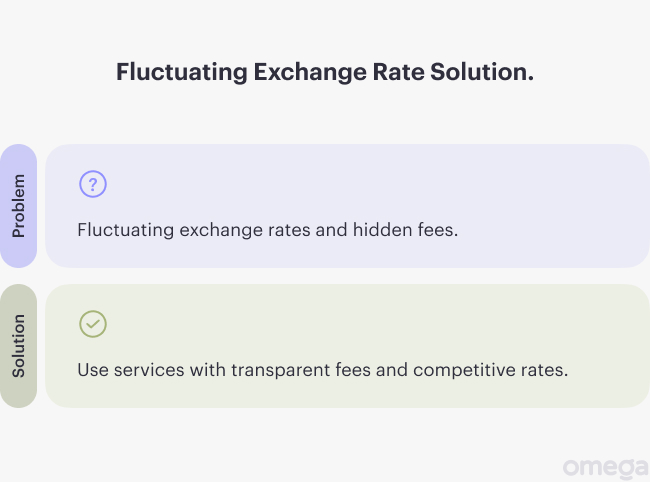
Go with providers that prioritise transparency, like Omega. To do this, look for services displaying all charges upfront and offering real-time exchange rates close to the market rate.
2. Slow Transaction Times

It is not unusual for international transactions to take a while to process, mostly due to differing banking systems and time zones. A 2022 report by DMI found that cross-border payments can take up to five business days to process.
And while it may not seem like too big of a deal, slow transactions will hinder your cash flow and affect your payments to suppliers and partners.
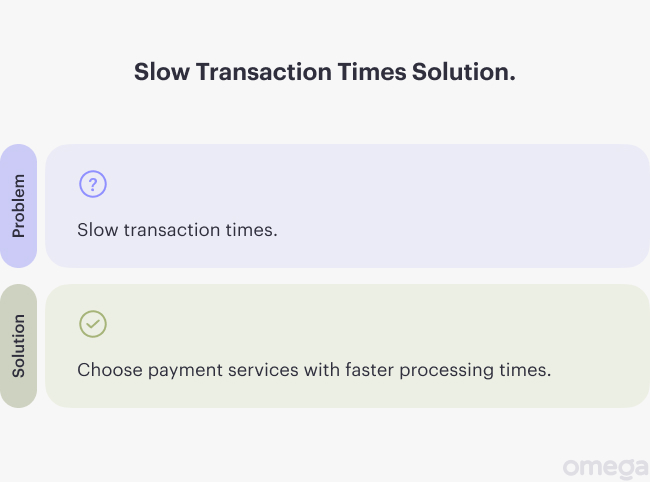
While many companies are fine with a ridiculous 5-business day wait, other companies who prioritise speed use advanced tech like real-time payment networks to speed up transactions. Omega is one of them. We can facilitate your borderless payments in two business days, which should be a major improvement in maintaining a steadier cash flow.
3. Compliance Issues

As if starting a business wasn’t hard enough, international financial laws differ wildly from one country to another. Each country has its own rules for anti-money laundering (AML), counter-terrorism financing (CTF), data privacy, and know-your-customer (KYC) procedures. Missing a single compliance requirement can lead to massive fines and legal problems.
In 2020, financial institutions worldwide were hit with $10.4 billion in fines due to AML and KYC violations according to Fenergo’s Annual Global Regulatory Fines Report. So, the main takeaway for this is that even minor oversights can cost your business a lot and potentially tarnish your reputation.
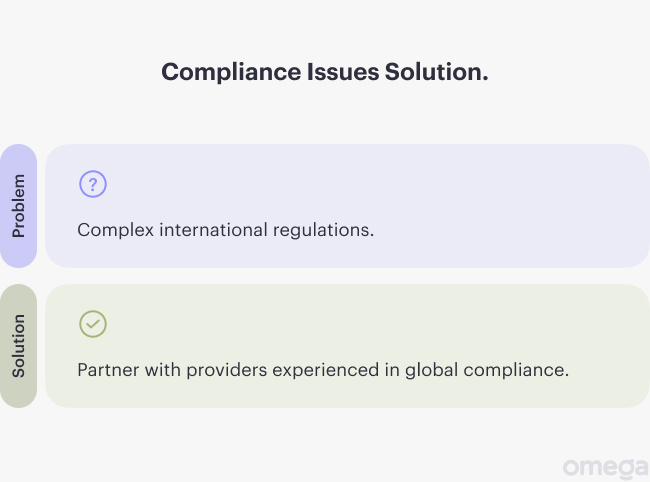
Choose services that specialise in global regulations and have automatic compliance systems in place. Check to see if they stay updated on legal requirements and meet all necessary standards (you can do this by checking their blog, about us, or emailing them).
4. Loose Security Allowing for Bad Actors to Reach You

According to the PwC Global Economic Crime and Fraud Survey 2020, 47% of global organisations reported experiencing fraud in the past two years, resulting in losses of over US$42 billion.
Cybercriminals seem to be targeting international transactions more than ever due to the large sums and sensitive information involved — and because cross-border payments can be pretty complex, it makes them susceptible to hacking, phishing, and other cyber threats.
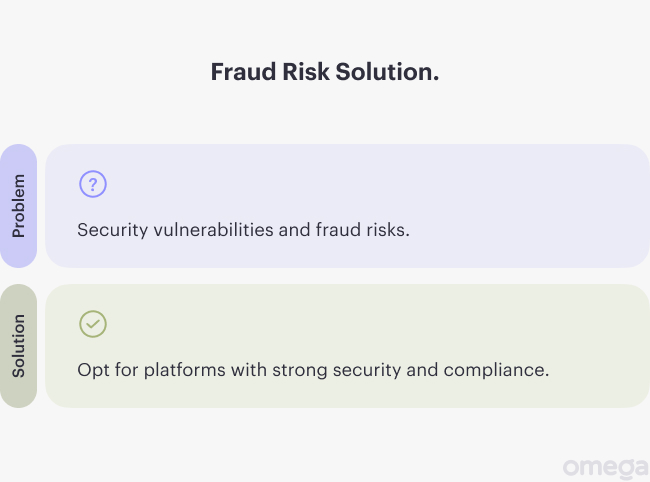
Only work with platforms (like Omega) that safeguard your financial security by implement advanced encryption, two-factor authentication, and regular security audits. Services compliant with international security standards like ISO 27001 and PCI DSS help safeguard your transactions and protect your assets.
5. Poor Customer Support When You Need It Most

There is lots of things that can create significant issues with cross-border payments, many of which can be mitigated with proper communication. Differing languages, time zones, and cultural differences are all issues that you can never truly avoid when working with international clients or business partners. And when problems arise, inadequate customer support exacerbates things.
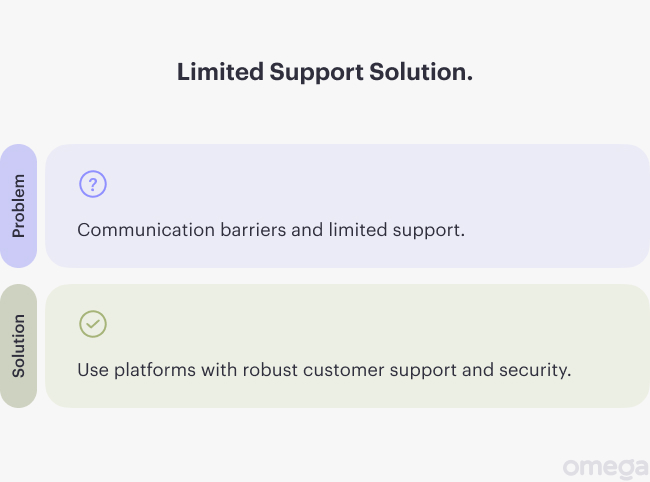
But you shouldn’t be having these issues because there is a simple, easy fix that most providers ignore: good customer service. Ultimately, if you are experiencing issues, good customer service is what you need most. So look for providers that are there to help you, no matter the issue or time of day.
Conclusion
Omega tackles your cross-border payments challenges head-on. We bring you steady exchange rates, transparent fees, speedy transfers, expert compliance support, ironclad security, and a friendly team that’s ready to help.
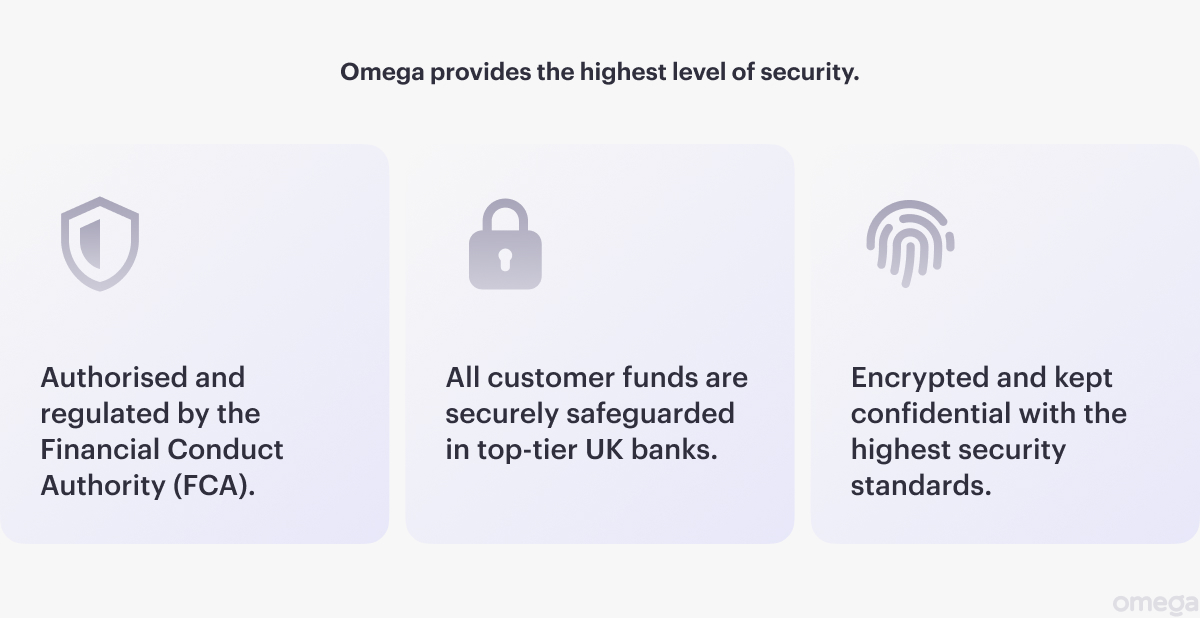
In making international payments easy, we streamline money transfers and foreign exchange worldwide, letting you focus on what matters most—growing your business. Do you want to learn more about how Omega can fix all your cross-border payment challenges? Check us out to see how!




